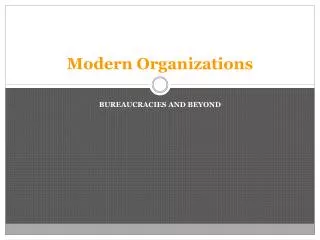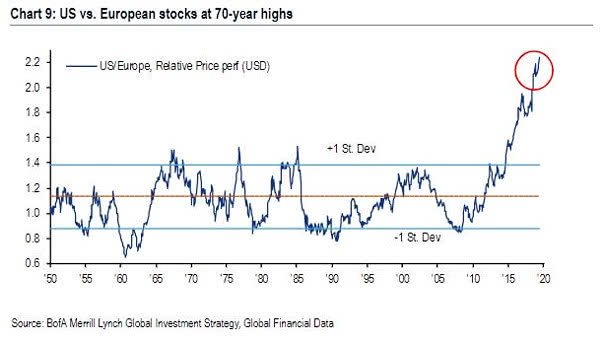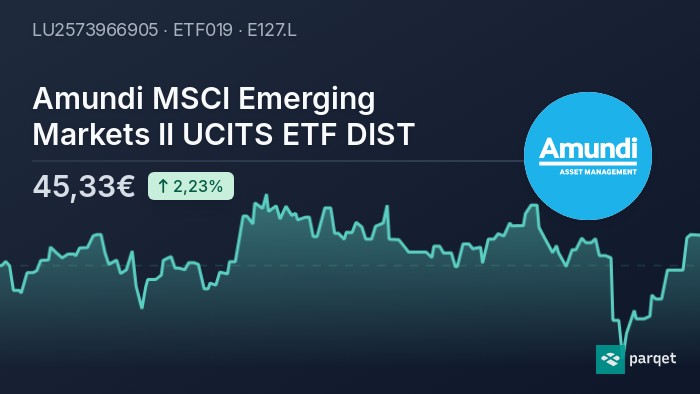Rethinking Middle Management: Their Critical Role In Modern Organizations

Table of Contents
The Evolving Role of Middle Management
Middle managers are no longer just "managers," but strategic partners bridging the gap between leadership and frontline employees. Their role has evolved from strict command-and-control to fostering collaboration, communication, and innovation. This shift requires a new set of skills and responsibilities, demanding adaptability and a forward-thinking approach. Effective middle managers are vital for navigating the complexities of the modern business landscape.
- Facilitating communication and information flow: Middle managers act as crucial conduits, ensuring that strategic directives from executive leadership are clearly understood and implemented by their teams. Simultaneously, they relay feedback and insights from the frontline, ensuring a two-way flow of information. This bidirectional communication is key to organizational agility and responsiveness.
- Mentoring and developing high-potential employees: Investing in the growth of future leaders is a key responsibility. Middle managers play a vital role in identifying, nurturing, and mentoring high-potential employees, preparing them for advancement within the organization. This succession planning is critical for long-term organizational health.
- Championing innovative ideas and streamlining processes: Middle managers are often closest to day-to-day operations, providing a unique perspective on process improvements. They can champion innovative ideas from their teams and help implement them, contributing directly to increased efficiency and productivity.
- Driving employee engagement and fostering a positive work culture: Creating a positive and engaging work environment is paramount for employee retention and productivity. Middle managers play a crucial role in building strong team dynamics, resolving conflicts, and promoting a culture of collaboration and support.
- Adapting to rapid changes in the business landscape and implementing new strategies: The modern business world is characterized by rapid change. Effective middle managers are adept at adapting to these changes, implementing new strategies efficiently, and guiding their teams through periods of transition.
Middle Management as a Bridge Between Leadership and Employees
Effective middle managers translate high-level strategic goals into actionable plans for their teams. They act as a critical link, ensuring alignment between executive decisions and on-the-ground execution. This bridging function is vital for organizational success.
- Translating complex business strategies: Senior leadership often communicates in broad strokes. Middle managers break down complex strategic goals into clear, manageable tasks for their teams, ensuring everyone understands their role in achieving the overall objective.
- Collecting and analyzing team feedback: They gather valuable insights from their teams, providing crucial feedback to senior leadership. This bottom-up perspective is essential for informed decision-making and ensures that the organization remains responsive to the needs and challenges faced by its workforce.
- Representing employee concerns and perspectives: Middle managers act as advocates for their teams, ensuring their needs are heard and considered. This role enhances trust and builds a strong, collaborative relationship between leadership and employees.
- Improving internal communication and collaboration: Effective middle managers facilitate seamless communication and collaboration not only within their teams but also across different departments. This cross-functional collaboration is essential for efficient project execution and organizational success.
Developing High-Performing Middle Managers
Investing in training and development programs tailored to the evolving needs of middle management is crucial. Organizations must prioritize the continuous growth and development of these critical players.
- Leadership training programs: Focus on developing emotional intelligence, delegation skills, and effective decision-making. These skills are crucial for navigating complex team dynamics and fostering a supportive work environment.
- Workshops on effective communication and conflict resolution: Equipping middle managers with robust communication and conflict resolution skills is essential for building strong teams and maintaining a productive work environment.
- Mentorship programs: Pairing experienced middle managers with rising stars provides valuable guidance and support, accelerating the development of future leaders.
- Access to online learning platforms and industry conferences: Continuous learning is key. Providing access to resources that promote ongoing professional development keeps middle managers abreast of industry trends and best practices.
Measuring the Impact of Middle Management
Establishing clear KPIs (Key Performance Indicators) to track the effectiveness of middle management is essential for optimizing their contribution. Data-driven approaches ensure that organizational investments in middle management yield tangible results.
- Tracking employee satisfaction and retention rates: High employee satisfaction and low turnover are strong indicators of effective middle management.
- Monitoring project completion rates and budget adherence: These metrics directly reflect the efficiency and effectiveness of middle management in executing strategic initiatives.
- Assessing the effectiveness of communication and collaboration initiatives: Regular assessments of communication flows and collaborative efforts reveal areas for improvement and highlight the success of management initiatives.
- Measuring innovation and improvement within teams: Tracking innovation and process improvements within teams provides insights into the impact of middle management in fostering a culture of continuous improvement.
Conclusion
Rethinking the role of middle management is no longer optional; it's essential for organizational success. By recognizing their pivotal position as bridges between leadership and employees, investing in their development, and implementing effective performance measurement strategies, organizations can unlock the immense potential of their middle managers. Embrace a modern perspective on middle management and witness the transformative impact on your organization's performance and overall success. Don't underestimate the power of effective middle management—it's time to rethink your approach and invest in the future of your organization through strategic middle management development.

Featured Posts
-
 Is De Recente Prestatieverschillen Tussen Europese En Amerikaanse Aandelen Houdbaar
May 25, 2025
Is De Recente Prestatieverschillen Tussen Europese En Amerikaanse Aandelen Houdbaar
May 25, 2025 -
 M56 Traffic Updates Motorway Closure Due To Serious Crash
May 25, 2025
M56 Traffic Updates Motorway Closure Due To Serious Crash
May 25, 2025 -
 Amundi Msci World Ii Ucits Etf Dist Daily Nav Updates And Analysis
May 25, 2025
Amundi Msci World Ii Ucits Etf Dist Daily Nav Updates And Analysis
May 25, 2025 -
 Beloved South Shields Bikers Final Ride A Community Mourns
May 25, 2025
Beloved South Shields Bikers Final Ride A Community Mourns
May 25, 2025 -
 La Liga Da Soerloth Sov Ilk Yarida 4 Gol
May 25, 2025
La Liga Da Soerloth Sov Ilk Yarida 4 Gol
May 25, 2025
